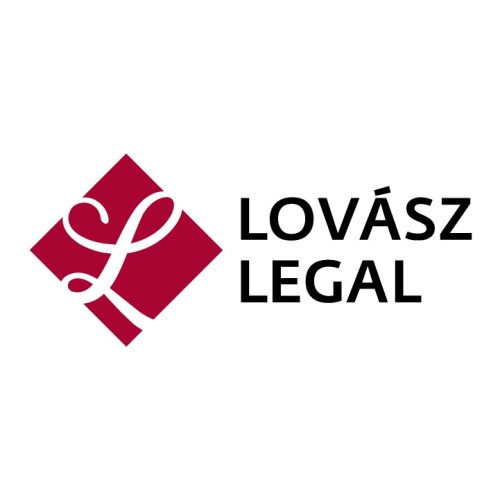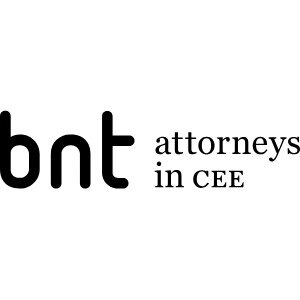Best Hiring & Firing Lawyers in Slovakia
Share your needs with us, get contacted by law firms.
Free. Takes 2 min.
Or refine your search by selecting a city:
List of the best lawyers in Slovakia
About Hiring & Firing Law in Slovakia
Hiring and firing laws in Slovakia are governed by the country's Labor Code, which outlines the rights and obligations of both employers and employees. The aim is to ensure fairness and transparency in employment practices, providing both parties with a clear framework within which to operate. These laws cover a range of topics including employment contracts, termination procedures, severance pay, and the rights of employees during disciplinary actions. Employers must adhere to specific regulations to lawfully hire or terminate employment, ensuring compliance with Slovak and European Union labor standards.
Why You May Need a Lawyer
There are numerous situations where individuals or businesses may require legal assistance related to hiring and firing in Slovakia:
- Complex Employment Contracts: Drafting or reviewing employment contracts to ensure compliance with local laws and protect your interests.
- Disputes Over Unfair Dismissals: Representing employees or employers in cases of alleged wrongful termination.
- Navigating Redundancies: Legal guidance on mass redundancies, including assessing whether redundancy processes are transparent and lawful.
- Understanding Workers' Rights: Assistance in understanding legal rights, especially if discrimination or harassment is suspected.
- Compliance with Regulations: Ensuring adherence to rapidly changing labor laws, especially concerning temporary, agency, or expatriate workers.
Local Laws Overview
The key elements of Slovak hiring and firing laws include:
- Employment Contracts: These can be for a fixed term or indefinite period. Any contract must comply with the Labor Code's stipulations regarding working hours, leave entitlements, and termination clauses.
- Termination of Employment: Valid reasons for termination include redundancy, performance issues, or misconduct. Notice periods and severance pay depend on the length of service and the reason for termination.
- Notice Periods: Depending on the employment length and the nature of termination, notice periods commonly range from one to three months.
- Collective Redundancies: Employers must negotiate with employee representatives if they plan to terminate a large number of employees (usually defined as 20 or more).
- Discrimination and Equal Treatment: The law prohibits discrimination based on gender, age, race, religion, disability, or sexual orientation.
Frequently Asked Questions
What is required for a valid employment contract in Slovakia?
Employment contracts must be in writing and include essential terms such as job description, duration (if fixed-term), working hours, salary, and notice periods. Both parties must agree to these terms for the contract to be valid.
Can an employer terminate employment without notice?
Employment can typically only be ended without notice for severe misconduct. Otherwise, standard procedures with notice periods must be followed.
What are the laws regarding probation periods in Slovakia?
A probationary period, not exceeding three months, allows either party to terminate the employment relationship without cause or notice during this time.
How do notice periods work?
Notice periods vary based on the worker's length of service and termination reasons, typically ranging between one and three months.
When is severance pay required?
Severance pay is required primarily in redundancy situations or if the termination is not due to employee fault. The amount depends on tenure.
Is it mandatory to have employee representatives for negotiations?
Yes, particularly in cases involving collective redundancies, employers must negotiate with employee representatives.
What protections exist against workplace discrimination?
Slovakia's labor laws prohibit discrimination, ensuring equal treatment regardless of various individual characteristics such as age, race, and gender.
What should I do if I suspect wrongful termination?
Consult a legal professional who can help assess the situation, determine your rights, and potentially mediate or pursue legal action against unfair dismissal.
Are there special considerations for foreign employees?
Yes, compliance with visa requirements and potential additional labor regulations must be considered for expatriate workers.
How can employers address poor performance without immediate termination?
Employers should provide performance reviews, offer improvement plans, and clearly document any ongoing issues before proceeding to disciplinary action or termination.
Additional Resources
For further assistance, the following resources can be invaluable:
- Ministry of Labor, Social Affairs and Family of the Slovak Republic: Provides comprehensive information on employment laws and rights.
- Slovak National Labor Inspectorate: Offers guidance and enforces labor law compliance.
- Unions and Employee Associations: Can offer advice and support for workers facing employment issues.
Next Steps
If you need legal help regarding hiring and firing in Slovakia, consider the following steps:
- Consultation: Seek initial advice from a qualified labor lawyer to understand your position and options.
- Documentation: Gather all relevant documents, including contracts, correspondence, and performance records, to support your case.
- Dispute Resolution: Consider mediation or alternative dispute resolution mechanisms as a first step to resolve conflicts.
- Legal Action: If necessary, prepare to file a claim in the relevant labor courts with the help of your legal advisor.
Lawzana helps you find the best lawyers and law firms in Slovakia through a curated and pre-screened list of qualified legal professionals. Our platform offers rankings and detailed profiles of attorneys and law firms, allowing you to compare based on practice areas, including Hiring & Firing, experience, and client feedback.
Each profile includes a description of the firm's areas of practice, client reviews, team members and partners, year of establishment, spoken languages, office locations, contact information, social media presence, and any published articles or resources. Most firms on our platform speak English and are experienced in both local and international legal matters.
Get a quote from top-rated law firms in Slovakia — quickly, securely, and without unnecessary hassle.
Disclaimer:
The information provided on this page is for general informational purposes only and does not constitute legal advice. While we strive to ensure the accuracy and relevance of the content, legal information may change over time, and interpretations of the law can vary. You should always consult with a qualified legal professional for advice specific to your situation.
We disclaim all liability for actions taken or not taken based on the content of this page. If you believe any information is incorrect or outdated, please contact us, and we will review and update it where appropriate.
Browse hiring & firing law firms by city in Slovakia
Refine your search by selecting a city.














